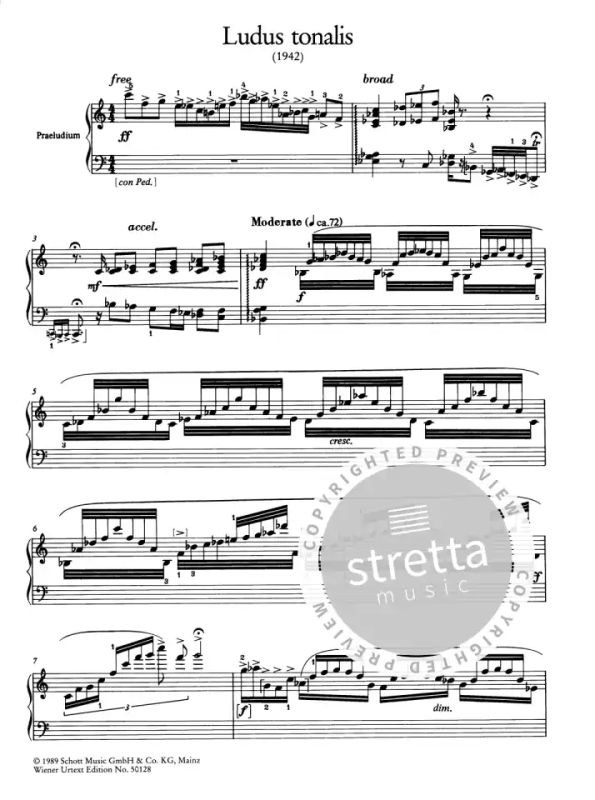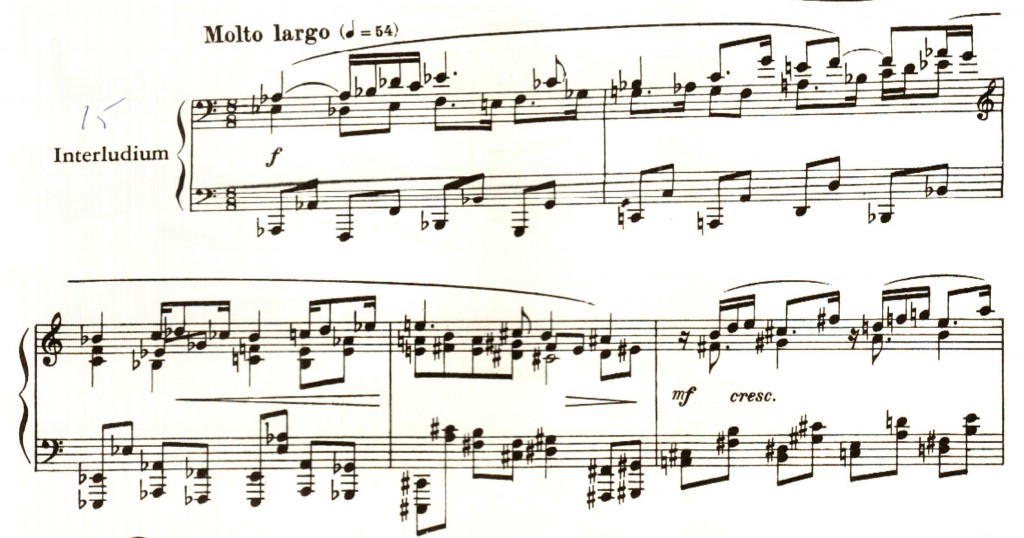

This sonata is the kind of feverishly expressionist and imaginative work that grows on you the more you discover about it, and is certainly a remarkable creation for a composer of 70 – you would probably place it as an intensely youthful tour de force if encountering it on a blind hearing.

The second Adagio molto movement has a quietness of atmosphere and a melancholic beauty that builds to intense climaxes – a masterpiece of emotional landscaping that can take you anywhere your imagination fancies, though where you end up is unlikely to be all sunshine and rainbows. 1, and returning to Weisgall there is quite a hefty dose of the Romantic to be heard, especially in the first movement. With greater extremes in all directions, one can hear this as an extension of something like Alban Berg’s Piano Sonata Op. We are gifted greater clarity in this regard in the opening of the final Rondo quasi presto, but not for long. The ‘difficulty’ here is not so much grappling with angular fistfuls of notes, but Weisgall’s apparent freedom with rhythm. There is a logical sense of flow, and once you become acclimatised it becomes clear that each movement has an architecture that builds in ways not entirely dissimilar to classical examples. The result is one of intellectual rigour mixed with a keen sense of the dramatic. Weisgall’s idiom is ‘post-tonal’ though not dogmatically serial. There are some vocal works that have also been recorded, but while acknowledged as a significant composer Weisgall could hardly be considered mainstream.Īllan Kozinn’s booklet notes considers this Sonata for Piano an “undiscovered gem,” and it certainly is a work with a powerful effect. He is best known for his operas, fragments of one appearing on the Naxos label ( review). Hugo Weisgall is unlikely to be a familiar name to most readers. March 2016, Studzinski Recital Hall, Bowdoin College.

La Scena Musicale Two Year Personal Subscription - Canada $69.Support us financially by purchasing this from.Donation: Simply $10 a month $10.00 / month for 12 months.La Scena Musicale 1 Year Personal Canadian Subscription $39.00.La Scena Musical Greeting Cards $25.00 $20.00.Discovery CD: Jean-Paul Jeannotte, tenor (Die schöne Mülllerin) $10.00 $7.00.LSM October 2021 (Walter Boudreau/Rising Stars) $12.00.

Margot and Rudi: were they lovers? posted on Septem| under Lebrecht Weekly.Review | New Bayreuth Festival Ring Cycle - A Stew of Undercooked Ideas posted on Aug| under Concert Reviews, Opera.Lebrecht Weekly | John Adams: Slonimsky’s Earbox (Alpha) posted on Aug| under Classical Music, Lebrecht Weekly, Orchestral.(Chandos) posted on Aug| under Classical Music, Lebrecht Weekly, Violin Lebrecht Weekly | Alban Berg: Violin concerto &c.Lebrecht Weekly | Prokofiev, Tcherepnin: The Bark of Yearning (Avi-music) posted on Aug| under Classical Music, Lebrecht Weekly.Sign on to the blogfeed: Visit the website: I’ve had her Ludus in the background all week and, while I can’t pretend to love the work, I can’t help but admire Hindemith’s morning exercises, his oh-so-German devotion to the precise placement of nuts and bolts and Laretei’s unflinching turn of the family screwdriver. Laretei treats Hindemith with appropriate austerity, no flirty smiles, no lapses of concentration (dinner at the Bergmans must have been fun). She has technique to spare and a feel for mood that few piano players can replicate. Why she is not better known I cannot figure. The pianist in this rare recording, reissued from 1965, is the Estonian refugee Käbi Laretei who, in Sweden, became the first wife of the film drector Ingmar Bergman. Like a rattler, you know it’s there but you don’t dare look. The 1943 Ludus Tonalis set for solo piano, premiered by Artur Schnabel in Chicago that year, is Hindemith’s attempt at a Goldberg Variations, contrapuntal as a dyspeptic snake, turning this way and that, striking without warning.


 0 kommentar(er)
0 kommentar(er)
